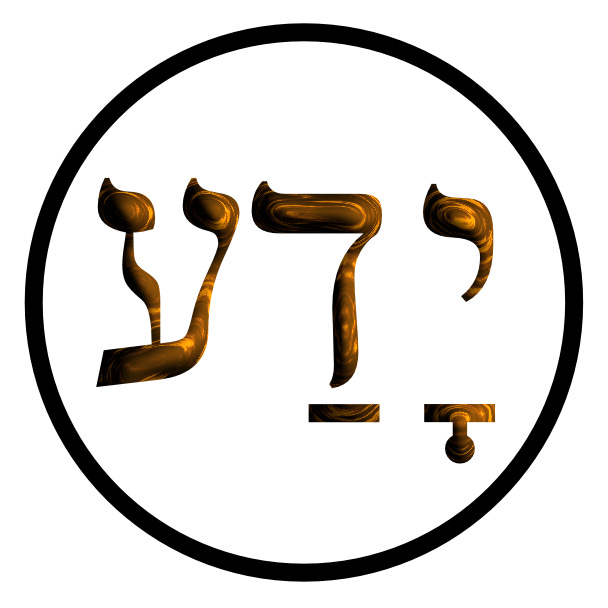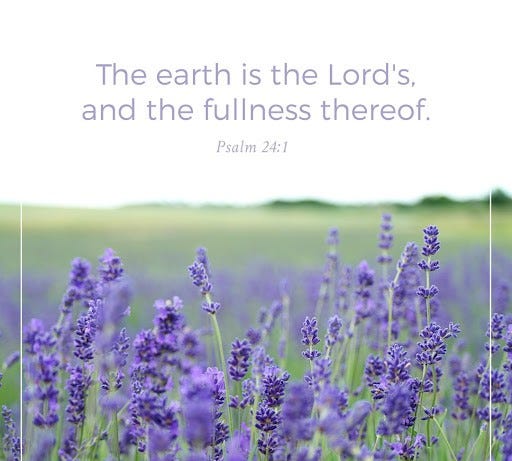“I form the light and create darkness: I make peace and create evil: I the Lord do all these things.” Isaiah 45:7
“God is inescapable. He is God only because He is inescapable. And only that which is inescapable is God.” —Paul Tillich1
The twelfth-century rabbi and biblical scholar Abraham ibn Ezra thought all the psalms extraordinary, but considered one in particular to be sublime. No other poem in the five books of the psalter, he insisted, matches Psalm 139’s insight into the relationship between humans and God.2 He’s not alone. The psalm is generally held in such high esteem that the Midrash Tehillim asserts it must’ve been composed by Adam himself.3
Psalm 139 is breathtaking in two seemingly disparate senses, as is entirely appropriate of anything sublime.4 On the one hand, its evocations of divine grandeur and presence prompt human responses of awe and gratitude as well as a comforting sense of safety; on the other, those very same descriptions also can provoke fear, trembling, and a panicky sense of suffocation. When standing before God, we sometimes exult and sometimes cower. We celebrate and we shudder. I form both light and darkness, thunders the Divine Mystery.
Our conflicted response, which one commentator calls “flight and fascination”5 and another “tremendum et fascinans,”6 is typical of the Hebrew scriptures’ accounts of human encounters with God. Psalm 139 perfectly captures this ambivalence. Hence, to use one of its own passages to describe it, it is a fearful, wonderful psalm.
It would be an error to think that the flight and fascination response is exclusively a description of the Hebraic religious experience. In fact, it’s the inevitably human way of interacting with the Divine. As such, Psalm 139 is a theo-philosophical meditation on an experience that crosses geographical and historical boundaries.7
From God’s Side
In singing about the nature of God, the psalmist emphasizes two divine qualities: omniscience and omnipresence. God knows everything there is to know about each human being, and God’s presence is everywhere. There is no place I can go where God doesn’t see me because there is no place where God is not.
Divine Omniscience
The psalmist announces that God knows him, and by implication all humans, in every possible life situation.8
O LORD, you have searched [haqar] me and known me.
You know [yada’] when I sit down and when I rise up;
you discern my thoughts from far away.
You search out my path and my lying down,
and are acquainted with all my ways.
Even before a word is on my tongue,
O LORD, you know it completely. (vv. 1-4)9
The verb yada’, “to know,” appears no fewer than seven times in the psalm (vv. 1, 2, 4, 6, 14, 23 [2x]), and in each case it suggests a deeply personal and relational “I-thou” knowing rather than a distantly objective “I-it” one. This intimacy is predicated on God’s having searched the psalmist’s soul in all its activities and complexities. Haqar, “to search,” connotes a penetratingly deep examination that goes to the very heart of what’s being investigated.
The sort of in-depth examination denoted by haqar in turn relies on the fact that the psalmist was created by God. As the First Artist, God comprehends the created order from the inside out.
It was you who formed my inward parts;
you knit me together in my mother’s womb.
My frame was not hidden from you,
when I was being made in secret,
intricately woven in the depths of the earth.
Your eyes beheld my unformed body.10
In your book were written
all the days that were formed for me. (vv. 13, 16abc)
Divine Omnipresence
God’s presence is everywhere. The Divine, to recall words attributed to the eleventh-century Anselm of Canterbury, is a circle whose center is everywhere and whose circumference is nowhere. God is not identical to creation, but there’s no place in the creation where God is absent.
If I ascend to heaven, you are there;
if I make my bed in Sheol, you are there.
If I take the wings of the morning
and settle at the farthest limits of the sea,
even there your hand shall lead me,
and your right hand shall hold me fast.
If I say, ‘Surely the darkness shall cover me,
and the light around me become night,’
even the darkness is not dark to you;
the night is as bright as the day,
for darkness is as light to you.11 (vv. 8-12)
The psalmist is making an extraordinary claim here. It’s unconventional to proclaim God’s presence in the heavens and on earth, but to insist that God is also in Sheol, the underworld, would’ve shocked the ancient Hebrew mind. Descriptions of Sheol are vague, befitting a murky place where the shades of the dead are ghostly and insubstantial. But the Hebrew scriptures for the most part are quite definite: God isn’t there. As the God of the living, Yahweh has no connection to Sheol-darkness.
But for the psalmist, divine radiance lightens the darkness, even the horrible inkiness of the underworld. There is no gloominess that can shield us from God’s penetrating gaze. Even in the depths God is with us.
From Our Perspective
Through the prophet Isaiah (55:8), God reminds us that “my thoughts are not your thoughts, neither are your ways my ways.” This is quite true. Regardless of what God intends in exercising omnipresence and omniscience, we humans can’t quite decide how to understand or respond to either. Our experience of them can waffle between a sense of comfort and constriction, sometimes so swiftly that the two seem inseparable—which, of course, is precisely the mark of the sublime. This is the predicament the psalmist finds himself in.
Divine Omnipresence
If God is present, as the psalmist affirms, even in Sheol, that means we’re never on our own. Blaise Pascal famously said that when he gazed heavenwards, “the eternal silence” of infinite space overwhelmed him with “dread.”12 Clearly what shook him was the possibility that the universe is empty of God and ultimate meaning. But if the psalmist is correct, the cosmos is resplendent with God’s presence. There are no silent spaces.
But that means an individual human’s space is filled with God, too. As the psalmist sings,
You hem me in, behind and before,
and lay your hand upon me. (v. 5)
Note that both senses of the sublime, the fascinans and the tremendum, reveal themselves here for the first time. The Hebrew verb tsur, translated as “hem,” is equivocal. On the one hand, it can connote a situation in which the psalmist is ringed by God like a city is safeguarded by a impregnable wall. So long as he’s “hemmed in” by God, nothing can harm him. Given the precarity of life, this is surely comforting: think of the St. Patrick prayer: “God before me, God behind me.” God has my back, my front, my sides. I’m protected in all directions.
But that’s not the only sense of tsur. More threateningly, it can mean “to hedge in,” “to lay siege to,” both of which suggest a darker kind of surrounding: one that entraps or imprisons (e.g., Deut 20:12; 2 Sam 11:1; Ezek 4:3.) Moreover, the second line in verse 6, “lay your hand upon me” (kappekah ‘alay wattaset) is likewise double-edged. On the one hand, it positively suggests divine inspiration (e.g., Ezek 8:1); on the other hand, divine judgment or retribution (e.g., Ps 75:8). Verse 10b, “your right hand shall hold me fast,” is similarly equivocal: to be held fast or tightly can suggest protection against danger. But the verb achaz, translated here as “hold fast,” literally and more alarmingly means “to seize” or “to grasp”—to be held against one’s will.
The first set of possibilities attracts and comforts; the second elicits anxiety and forboding. We’re pleasantly fascinated by and crave the one; we’re distressingly fascinated by and want to flee the other.
And speaking of flight, consider the passage that comes directly before the “If I ascend to heaven, you are there” assertion of divine omnipresence:
Where can I go [halak] from your spirit?
Or where can I flee [barah] from your presence? (v. 7)
In the first line, the verb halak is quite benign, suggesting nothing more than kinetic movement. But barah in the second line is more loaded. We “flee” when we’re in danger or want to escape a threatening situation. Barah suggests duress and distress. So once again we have the fascinans and tremendum of the sublime: we desire to go to God even as we want to run from God. What fascinates and attracts us also frightens and repels us.
Divine Omniscience
The psalmist’s liberal use of the verb yada’ makes it abundantly obvious that God knows each and every human inside and out—knows us, in fact, while we’re still seemingly identityless blobs (glamim; see note 10) in our mother’s wombs.
There’s something comforting about being this well known. It encourages a sense of intimacy with the Supreme Knower who gets us in both our sitting down and our rising up. We don’t feel alone, desolate, adrift. We sense that Somebody out there really understands us, even if our fellow humans don’t. To be unknown is to have no perduring existence.
But wait a minute. If we pause to think about God’s all-seeing penetration of our deepest recesses, we can begin to feel a bit squirmy. We realize that God sees all those dark places in us that we’d prefer to keep hidden from others (especially God) and even from ourselves. This is threatening enough. But what rattles us at least as much is the fact that God knows us better than we do.
In an age that genuflects before the altar of psychology, most of us are reconciled to a belief in a mysteriously unconscious psychic realm that, behind our backs as it were, partially determines our actions in the world. We’ve come to terms with our lack of total self-awareness, acknowledging that part of us will always remain hidden from us. But to think that God can penetrate the murky interior space closed to our pwn conscious minds: that’s too bewildering an invasion of ourselves to fathom. As the psalmist says,
Such knowledge is too wonderful for me;
it is so high that I cannot attain it. (v. 6)
The “wonderful” here isn’t, of course, meant positively, as when we say something like “What a wonderful sunset!” The Hebrew is pili’. It shows up only one other time in the Hebrew scriptures (Judg 13:18) when an angel of the Lord refuses to share his name. “Why do you ask my name? It is too wonderful [pili’].” It’s too incomprehensible, too unattainable, for mere mortals. So is the knowledge that God sees those parts of us we can’t
The same realization is iterated a bit later, but this time in a hauntingly strange locution that could suggest either a stoical acceptance of the inevitable or an outright despair in the face of it. The psalmist confesses that if he tries to fathom every detail about himself known by God, he quickly loses count because they’re greater in number than the desert’s sands; they’re bone-crushingly weighty (‘atsam).
How weighty to me are your thoughts, O God!
I try to count them—they are more than the sand.
I come to the end [or “I awake” or “I become weary”]—I am still with you. (vv. 17-18)
Verse 18 is notoriously difficult to translate. It allows for a couple of different interpretations, both of which underscore the psalmist’s uneasy bewilderment at realizing his transparency to God but not to himself. The relevant verb is quts, and it’s been variously rendered as “disgust,” as in “I quit counting God’s thoughts because I’m disgusted with the futility of the project,” or “weary,” as in “I’ve come to the end of my energy and so I’m stopping,” or even “awake,” as in “I’ve become aware/awakened to the impossibility of knowing what you, God, know about me.” Despite his confessed opacity, however, the psalmist never forgets that God’s eyes are upon him.“I am still with you.” But even this concluding short observation is ambiguous, isn’t it? It can be an expression of apprehension or of hope.
Explosion
In the midst of all this tension-building, with the psalmist ricocheting back and forth between tremendum and fascinans in his attitude towards God, comes an unexpected explosion of rage ostensibly directed against “wicked” and “bloodthirsty” persons
who speak of God maliciously,
and lift themselves up against God for evil!
I hate them with perfect hatred;
count them my enemies. (vv. 19, 20, 22)
This abrupt shift in sentiment and language is so startling that it can only be explained, I believe, by seeing it as psychological—or, better, spiritual—displacement. The psalmist can’t bring himself to confess forthrightly his resentment of a deity who provokes such mixed feelings within him. The most he can do is insinuate it—“hem in,” “flee,” “hand upon me,” “weighty”—but this does nothing to relieve his internal distress. So, like an overworked pressure cooker, he eventually blows, spewing his anger at God onto less formidable human targets: “I hate them with perfect hatred.”
To his credit, the psalmist seems as stunned by his explosion as we, his readers, are, because he quickly retreats from it with a touchingly plaintive confession and an implied plea for mercy:
Search me, O God, and know my heart;
test me and know my thoughts.
See if there is any wicked way in me,
and lead me in the way everlasting. (vv. 23-24)
Note that the “search me” [haqar] that earlier threatened the psalmist now becomes his plea for God to sound and purify his interior.
“I Praise You”
A cynic might conclude that the only way for the psalmist to deal once and for all with his God-tension (and rage!) is to slay its Cause. This is the strategy famously endorsed by Nietzsche. As his God-killing “Ugliest Man” tells Zarathustra,
“God had to die: he saw with eyes that saw everything; he saw man’s depths and ultimate grounds, all his concealed disgrace and ugliness… He always saw me: on such a witness I wanted to have revenge or not live myself. The god who saw every thing, even man—this god had to die!”13
But the Ugliest Man’s deicide is a response that would never have occurred to the psalmist. Instead, he—and we—must find a way to live with the awareness, as Paul Tillich put it in a beatiful homily on Psalm 139, that “Omniscience means that our mystery is manifest. Omnipresence means that our privacy is public.”14
Hints of this way are to be found in the psalm itself. In the first place, the awareness that God is present everywhere and sees everything means that divine grace saturates the world. The earth is blessed and sustained by the Lord. Life and its Bestower are good, and we must remember this whenever we begin to feel hemmed in.
“The eyes of the Witness we cannot stand are also the eyes of One of infinite wisdom and supporting benevolence,” writes Tillich. “The center of being, in which our own center is involved, is the source of the gracious beauty which we encounter again and again in the stars and mountains, in flowers and animals, in children and mature personalities.”15
In the second place, the psalmist, despite occasionally feeling suffocated by God’s presence, is also aware that he, although mortal, isn’t at all a gratuitous speck in an indifferent cosmos. Remember what he sings in verse 16? “In your book were written / all the days that were formed for me.” There is an overall plan—a providence—in which the psalmist and indeed every other creature has a role to play, and these roles, even if we at times kick against them, bestow purposefulness upon us. As Tillich observes, they reassure us that there is
“an ultimate meaning of our life. Our days are written and counted; they are not merely accidental. He Who sees us most intimately looks at the vision of our whole life. We belong to this whole; we have a place of the utmost importance within it. As individuals and as a group, we have an ultimate destiny.”16
So while it’s safe to say, as Tillich notes, that someone who has “never tried to flee God has never experienced the God who is really God,”17 it’s also crucial to point out that someone who’s never longed to rest in God’s arms has never experienced the real God either. Clearly the psalmist knows both kinds of encounters, and that’s precisely why his song teases us with words and images that both attract and frighten. This is simply the way it is when we mortals sense the Ground from which we come. The experience, in its sublimity, helps us recognize, as the psalmist so beautifully says, that we and everything else are “fearfully and wonderfully made” by the God who creates both light and darkness. Our predominant response, our ultimate one, one that embraces and rides upon both tremendum and fascinans, is “praise” because “wonderful”—and fearful—“are God’s works.” (v. 14)
Paul Tillich, “The Escape from God” in The Shaking of the Foundations (New York: Penguin, 1949). p. 47.
Quoted in M. Friedlaender, Essays on the Writings of Abraham ibn Ezra (London: The Society of Hebrew Literature, 1877), Vol. IV, p. 173: “The hundred and thirty-ninth psalm sublimely describes the ways of the Almighty ; there is no psalm in any of the five divisions which equals it; the reader can comprehend its meaning according to the extent of his knowledge of the ways of God, and of the properties peculiar to the soul.” Abraham Ibn Ezra (usually referred to simply as ibn Ezra) was a twelfth-century rabbi and biblical commentator based in Cordoba. Wary of allegorical and kabbalistic readings of scripture, his interpretive approach tends to be more philosophical. He was a major influence on Maimonides.
The Midrash on Psalms, trans. William G. Braude (New Haven: Yale University Press, 1959), p. 343.
I intend here the eighteenth-century Enlightenment understanding of the sublime as a mixture of awed appreciation and terror. A favorite example of sublimity for aesthetes like Joseph Addison and Edmund Burke was an experience of the Alps: awed appreciation of their beauty, terror and even foreboding at their grandeur. This was an insightful break from the third-century’s Longinus simple characterization of the sublime as lofty thoughts or speech.
Reinhard Feldmeier and Hermann Spieckermann, God of the Living: A Biblical Theology, trans. Mark E. Biddle (Waco, TX: Baylor University Press, 2011).
Rudolf Otto, The Idea of the Holy, trans. John W. Harvey (New York: Oxford University Press, 1958).
Bizarrely, though, at least one commentator insists in an otherwise admirable book that “the psalm is not a philosophical or theological treatise on the nature of God.” Instead, he argues, the poem is exclusively about the individual relationship the psalmist has with God. But of course the two positions aren’t incompatible. Howard Neil Wallace, Words to God, Word from God: The Psalms in the Prayer and Preaching of the Church (Burlington, VT: Ashgate, 2005), p. 182.
Since the psalm is explicitly attributed to David, I use masculine pronouns in referring to the psalmist.
The literary device employed here, in which the psalmist pairs opposites (for example, sitting down and rising up) in order to suggest totality or an inclusive set, is called a “merism.”
Golem, translated here as “unformed body,” is a hapax legomenon in the Hebrew scriptures, although it’s found several times in the Talmud, usually referring to an embryo. At any rate, as the later eastern European tradition suggests, it connotes something chthonic, darkly primordial.
More merisms in this passage: for example, heaven and Sheol, east and west, darkness and light.
Blaise Pascal, Pensées, trans. A.J. Krailsheimer (New York: Penguin, 1966), p. 95.
Friedrich Nietzsche, Thus Spoke Zarathustra. In The Portable Nietzsche, ed. and trans. Walter Kaufmann (New York: Viking, 1954), pp. 378, 379. Nietzsche’s most famous deicidal passage is, of course, in his The Gay Science, included in Portable, pp. 95-96.
Tillich, “The Escape from God,” p. 53.
Ibid., p. 55.
Ibid.
Ibid., p. 49.










For the reading of this wonderful song you still can't beat the King James version for the shear beauty of the English language